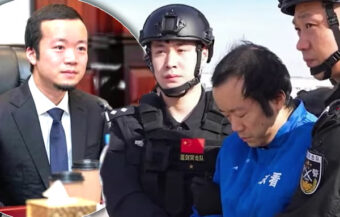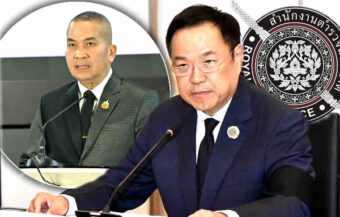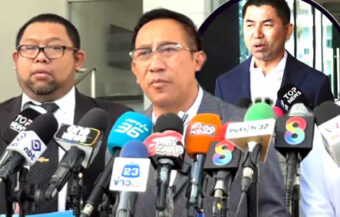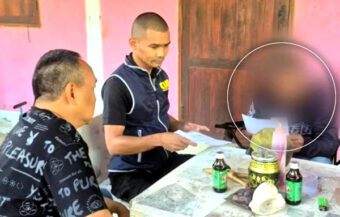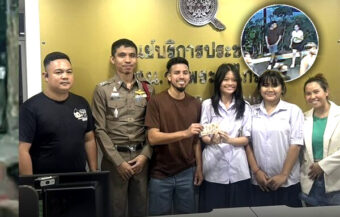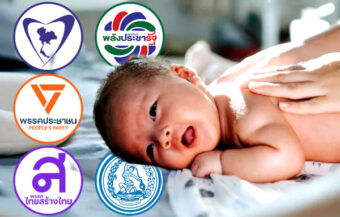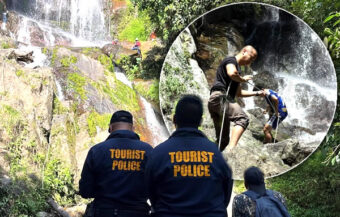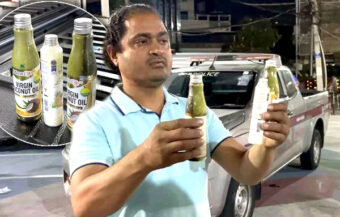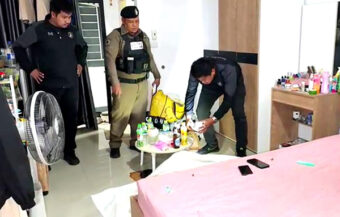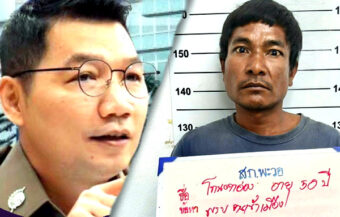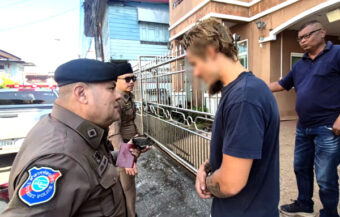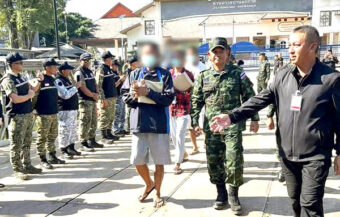Thaksin to address Thailand’s drug control board despite protests over his 2003 crackdown that caused thousands of deaths. Critics warn his violent legacy risks politicising drug policy amid worsening meth and cannabis problems nationwide.
Former Prime Minister Thaksin Shinawatra is set to deliver a controversial address to the Office of the Narcotics Control Board (ONCB) on Tuesday. The decision to invite him has sparked a wave of protests from human rights groups. This backlash stems from the notorious 2003 crackdown during which up to 2,800 suspected drug dealers died. However, Police Lieutenant General Phanurat Lakboon, Secretary-General of the ONCB, firmly defended the invitation on Monday. He stated that Mr Thaksin singlehandedly resolved Thailand’s drug problem over twenty years ago, and no one is better qualified to speak to the current board entrusted with the same mission.
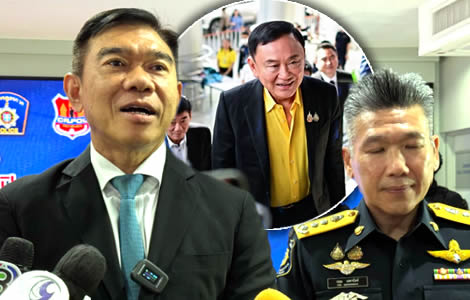
Police Lieutenant General Phanurat Lakboon, Secretary-General of the Office of the Narcotics Control Board (ONCB), has defended inviting former Prime Minister Thaksin Shinawatra to speak at the board’s upcoming meeting. The session will take place on Tuesday, May 27, in Bangkok. Thaksin will deliver a special lecture on Thailand’s drug suppression efforts. However, the decision to invite him has stirred heated debate and controversy.
Justice Minister Police Colonel Tawee Sodsong confirmed Thaksin’s invitation. He noted the former premier’s experience and knowledge of drug control. Yet many critics say the invitation is inappropriate.
They point to Thaksin’s violent and contentious legacy in the war on drugs during his premiership from 2001 to 2006. This divisive history has left deep political wounds that still resonate today.
Former PM Thaksin invited to ONCB meeting amid controversy 22 years later over his war on drugs legacy
The ONCB meeting, numbered 3/2568, is scheduled to begin at 1:30 p.m. in the Chitchai Wannasathit Conference Room at the ONCB headquarters in Din Daeng, Bangkok. The session will also be broadcast live to ONCB regional offices nationwide. Thaksin’s lecture, titled “Drugs, transnational crime, perspectives and challenges to sustainable problem solving,” will run from 1:40 p.m. to 2:20 p.m.
Phanurat argued the invitation was justified. He said Thaksin has valuable insights gained from a major anti-drug campaign launched during his time as prime minister. “When he was in power, Thailand declared victory over drugs,” Phanurat stated. He added that many current officials are relatively young and lack knowledge about the earlier successful methods used. Therefore, it is essential they learn from the past to improve future policies.
The past crackdown, often referred to as the “war on drugs,” began in 2003 under Thaksin’s administration. It was a brutal campaign aimed at eradicating narcotics, especially methamphetamine, which was flooding the country.
The government mobilised police, military, and community groups to root out drug dealers and users. The campaign saw thousands of arrests and, controversially, thousands of deaths.
ONCB meeting to feature Thaksin lecture on drug policy amid reflection on the 2003 crackdown’s impact
Officially, the government never called it a “war on drugs.” Instead, Thaksin’s administration used the phrase “X-ray the area” (สแกนพื้นที่) to describe their approach. The idea was to scan communities to identify and eliminate drug problems systematically.
The method involved tight coordination between government agencies and community leaders. The campaign was effective in significantly reducing visible drug trafficking and use in many parts of the country.
However, the crackdown drew widespread criticism from human rights groups. Reports of extrajudicial killings, forced confessions, and abuses by police and soldiers surfaced. The deaths of an estimated 2,800 people during this period raised serious concerns. Many suspected the security forces used excessive force. Nonetheless, the campaign did contribute to a measurable drop in drug trafficking and related crime, at least temporarily.
Phanurat said the government needs to balance learning from this past success with caution. “If there were unlawful actions during that time, we do not support them,” he clarified. He encouraged officials and the public to keep an open mind and separate effective policies from human rights violations. The goal is to develop sustainable and lawful methods to combat drugs.
The ONCB board is chaired by Justice Minister Police Colonel Tawee Sodsong, with Phanurat serving as the second vice-chairman. Phanurat personally wrote the invitation letter to Thaksin. “I want our younger generation to understand how Thailand managed the drug problem decades ago,” he explained. “Many young officials do not know this history or the strategies used.”
‘X-ray the area’ campaign cut drug use but drew harsh human rights criticism and thousands of deaths
When questioned about possible political pressure, Phanurat denied any interference. “I am a civil servant and focus solely on the mission, not politics,” he said firmly. He confirmed that Thaksin has accepted the invitation and plans to attend the meeting.
Despite these reassurances, the invitation has drawn sharp criticism. Political activist Nitithorn Lumlua warned the move could violate constitutional norms. He also cited Thaksin’s controversial hospital stays during his imprisonment, raising questions about his credibility.
Similarly, former Democrat MP Thepthai Senpong condemned Thaksin’s past drug policies on Facebook. He argued the old crackdown relied heavily on force and violence. Thepthai noted the current government’s drug control efforts have struggled to succeed. Therefore, he urged caution in embracing Thaksin’s legacy.
Thailand’s drug problem today is arguably worse than ever. Crystal methamphetamine, known locally as “ya ice,” floods the country. Most of it originates from the Golden Triangle region along the borders with Myanmar and Laos.
In addition, cannabis was legalised for medical and limited recreational use in 2022 under the Bhumjaithai Party government. Many critics blame this for an increase in drug culture, especially in tourist-heavy areas.
Critics warn Thaksin invitation risks politicising drug policy amid worsening meth and cannabis use
Minister of Public Health Somsak Thepsutin promised a crackdown on cannabis sales without medical certification. He said new regulations could be drafted within 40 days to tighten control. The move aims to reduce drug abuse and public disorder, which have worsened in some communities.
Phanurat emphasised that no one else matches Thaksin’s experience in drug policy leadership. Although the ONCB has former secretaries-general as advisers, none have dealt with the drug war’s scale like Thaksin. However, Phanurat declined to make Thaksin an official ONCB adviser. “Listening to him is enough for now,” he said. “I would not dare to appoint him officially.”
The upcoming lecture is a rare opportunity to hear directly from the man who shaped Thailand’s last declared drug victory. Yet it also reminds many of the human cost and controversy during that era. Human rights organisations continue to criticise the violence and lack of due process.
As Thailand faces rising drug use, trafficking, and evolving drug laws, its government struggles to balance enforcement, public health and human rights. The question remains: Can lessons from the past offer new solutions, or will they deepen political and social divisions?
Health minister vows crackdown on illegal cannabis sales amid drug law changes and growing abuse concerns
After Thaksin’s lecture, the ONCB meeting will review current drug control strategies. Officials must decide how to adapt policies to today’s challenges. The government and the public alike will watch closely to see how much Thaksin’s views influence future drug policy.
Public debate about the drug war’s legacy is likely to intensify in the coming months. Many call for a more humane approach. However many more support tougher or more robust crackdowns. Meanwhile, drug use, especially methamphetamine, threatens Thailand’s social stability.
Drugs showdown in the works bound to prompt memories of the decisive 2003 crackdown by Thaksin’s government
Health Minister Somsak launches regulatory blitz to outlaw non-medical cannabis use within 40 days
Phanurat’s invitation to Thaksin shows the ONCB’s willingness to reconsider past methods. It also signals a desire to learn from history—flaws and all. The government faces a difficult path ahead. It must craft policies that protect citizens while respecting their rights.
In summary, the meeting on May 27 is a bold move by the Secretary-General. It could help officials regain confidence in Thailand’s ongoing but lacklustre fight against drugs. Of course, it will almost certainly now reopen old wounds and controversies.
Join the Thai News forum, follow Thai Examiner on Facebook here
Receive all our stories as they come out on Telegram here
Follow Thai Examiner here
Further reading:
Health Minister Somsak launches regulatory blitz to outlaw non-medical cannabis use within 40 days
Buriram cannabis factory raided for illegal Vietnamese staff as drugs czar declares a new regime
UK ambassador meets top Thai officials to hear about plans to rein in cannabis as smuggling surges
UK holiday maker to Thailand lands in Heathrow Airport London with £1 million worth of cannabis
Dark web Xanax counterfeiting gang managed from Thailand smashed in the UK with 10 people convicted
Unlikely rags to riches convict star arrested again in Thailand over online gambling promotion


